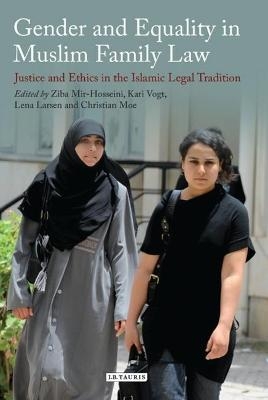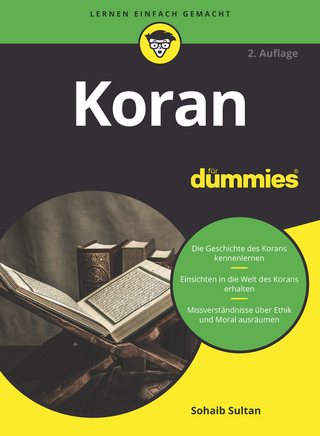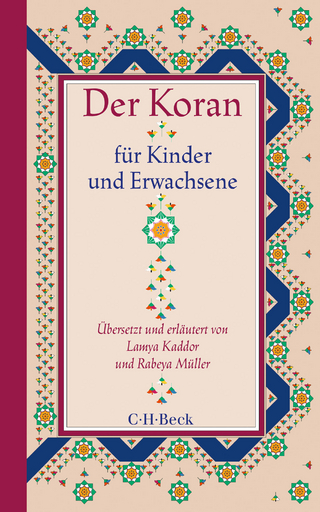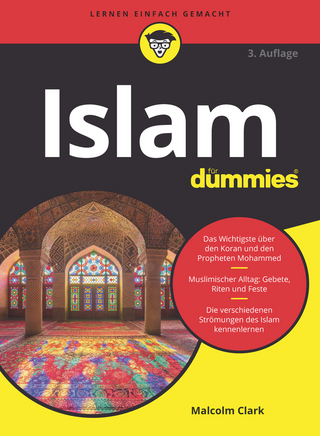
Gender and Equality in Muslim Family Law
I.B. Tauris (Verlag)
978-1-78453-740-1 (ISBN)
It explores how male authority is sustained through law and court practice in different contexts, the consequences for women and the family, and the demands made by Muslim women s groups. The book argues for women's full equality before the law by re-examining the jurisprudential and theological arguments for male guardianship (qiwama, wilaya) in Islamic legal tradition. Using contemporary examples from various contexts, from Morocco to Malaysia, this volume presents an informative and vital analysis of these societies and gender relations within them. It unpicks the complex and often contradictory attitudes towards Muslim family law, and the ways in which justice and ethics are conceived in the Islamic tradition. The book offers a new framework for rethinking old formulations so as to reflect contemporary realities and understandings of justice, ethics and gender rights. "
Ziba Mir-Hosseini is a legal anthropologist, specializing in Islamic law, gender and development, and a founding member of the Musawah Global Movement for Equality and Justice in the Muslim Family. She has published books on Islamic family law in Iran and Morocco, Iranian clerical discourses on gender, Islamic reformist thinkers, and the revival of zina laws. She has also co-directed two award-winning feature-length documentary films on Iran: Divorce Iranian Style (1998) and Runaway (2001). Kari Vogt is Associate Professor (Emerita) at the Department of Cultural Studies and Oriental Languages at the University of Oslo, Norway. She has published widely on Islamic and Middle East issues.
Introduction: Muslim Family Law and the Question of Equality. Ziba Mir-Hosseini, Kari Vogt, Lena Larsen and Christian Moe
1. Justice, Equality and Muslim Family Laws: New Ideas, New Prospects. Ziba Mir-Hosseini
Part I: Perspectives on Reality
2. Qiw?ma in Egyptian Family Laws: ‘Wifely Obedience’ between Legal Texts, Courtroom Practices and Realities of Marriages. Mulki Al-Sharmani
3. Egyptian Women’s Rights NGOs: Personal Status Law Reform between Islamic and International Human Rights Law. Marwa Sharafeldin
4. The Religious Arguments in the Debate on the Reform of the Moroccan Family Code. Aïcha El Hajjami
5. From Local to Global: Sisters in Islam and the Making of Musawah: A Global Movement for Equality in the Muslim Family. Zainah Anwar
Part II: Approaches to Reform
6. Gender Equality and the Doctrine of Wilaya. Muhammad Khalid Masud
7. The Status of Women between the Qur‘an and Fiqh. Nasr Abu-Zayd
8. Gender Equality and the Hadith of the Prophet Muhammad: Reinterpreting the Concepts of Mahram and Qiwama. Faqihuddin Abdul Kodir
9. Rethinking Men’s Authority over Women: Qiwama, Wilaya and their Underlying Assumptions. Hassan Yousefi Eshkevari
10. Revisiting Women’s Rights in Islam: ‘Egalitarian Justice’ in Lieu of ‘Deserts-based Justice’. Mohsen Kadivar
Part III: Instead of a Conclusion
11. The Paradox of Equality and the Politics of Difference: Gender Equality, Islamic Law and the Modern Muslim State. Anver M. Emon
| Erscheinungsdatum | 30.01.2017 |
|---|---|
| Sprache | englisch |
| Maße | 156 x 234 mm |
| Gewicht | 393 g |
| Themenwelt | Geisteswissenschaften ► Religion / Theologie ► Islam |
| Recht / Steuern ► Allgemeines / Lexika | |
| Recht / Steuern ► EU / Internationales Recht | |
| Recht / Steuern ► Privatrecht / Bürgerliches Recht | |
| Sozialwissenschaften ► Soziologie ► Gender Studies | |
| Sozialwissenschaften ► Soziologie ► Spezielle Soziologien | |
| ISBN-10 | 1-78453-740-3 / 1784537403 |
| ISBN-13 | 978-1-78453-740-1 / 9781784537401 |
| Zustand | Neuware |
| Haben Sie eine Frage zum Produkt? |
aus dem Bereich


